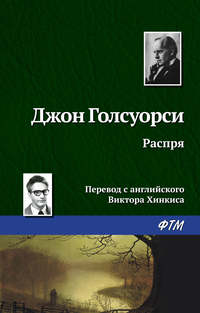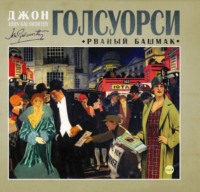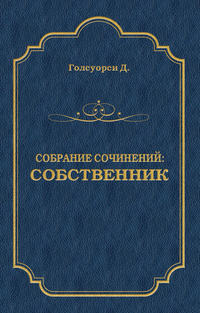 полная версия
полная версияAnother Sheaf
The Angel raised his eyebrows. "I had hoped for better things," he said.
"You must not suppose, sir," pursued his dragoman, "that there is not plenty of the undraped, so long as it is vulgar, as you saw just now upon the stage, for that is good business; the line is only drawn at the danger-point of art, which is always very bad business in this country. Yet even in real life the undraped has to be grotesque to be admitted; the one fatal quality is natural beauty. The laugh, sir, the laugh – even the most hideous and vulgar laugh – is such a disinfectant. I should, however, say in justice to our literary men, that they have not altogether succumbed to the demand for cachinnations. A school, which first drew breath before the Great Skirmish began, has perfected itself, till now we have whole tomes where hardly a sentence would be intelligible to any save the initiate; this enables them to defy the Watch Committees, with other Philistines. We have writers who mysteriously preach the realisation of self by never considering anybody else; of purity through experience of exotic vice; of courage through habitual cowardice; and of kindness through Prussian behaviour. They are generally young. We have others whose fiction consists of autobiography interspersed with philosophic and political fluencies. These may be of any age from eighty odd to the bitter thirties. We have also the copious and chatty novelist; and transcribers of the life of the Laborious, whom the Laborious never read. Above all, we have the great Patriotic school, who put the national motto first, and write purely what is good for trade. In fact, we have every sort, as in the old days."
"It would appear," said the Angel, "that the arts have stood somewhat still."
"Except for a more external purity, and a higher internal corruption," replied his dragoman.
"Are artists still noted for their jealousies?" asked the Angel.
"They are, sir; for that is inherent in the artistic temperament, which is extremely touchy about fame."
"And do they still get angry when those gentlemen – the – "
"Critics," his dragoman suggested. "They get angry, sir; but critics are usually anonymous, and from excellent reasons; for not only are the passions of an angry artist very high, but the knowledge of an angry critic is not infrequently very low, especially of art. It is kinder to save life, where possible."
"For my part," said the Angel, "I have little regard for human life, and consider that many persons would be better buried."
"That may be," his dragoman retorted with some irritation; "'errare est humanum.' But I, for one, would rather be a dead human being any day than a live angel, for I think they are more charitable."
"Well," said the Angel genially, "you have the prejudice of your kind. Have you an artist about the place, to show me? I do not recollect any at Madame Tussaud's."
"They have taken to declining that honour. We could see one in real life if we went to Cornwall."
"Why Cornwall?"
"I cannot tell you, sir. There is something in the air which affects their passions."
"I am hungry, and would rather go to the Savoy," said the Angel, walking on.
"You are in luck," whispered his dragoman, when they had seated themselves at a table covered with prawns; "for at the next on your left is our most famous exponent of the mosaic school of novelism."
"Then here goes!" replied the Angel. And, turning to his neighbour, he asked pleasantly: "How do you do, sir? What is your income?"
The gentleman addressed looked up from his prawn, and replied wearily: "Ask my agent. He may conceivably possess the knowledge you require."
"Answer me this, at all events," said the Angel, with more dignity, if possible: "How do you write your books? For it must be wonderful to summon around you every day the creatures of your imagination. Do you wait for afflatus?"
"No," said the author; "er – no! I – er – " he added weightily, "sit down every morning."
The Angel rolled his eyes and, turning to his dragoman, said in a well-bred whisper: "He sits down every morning! My Lord, how good for trade!"
VI"A glass of sherry, dry, and ham sandwich, stale, can be obtained here, sir," said the dragoman; "and for dessert, the scent of parchment and bananas. We will then attend Court 45, where I shall show you how fundamentally our legal procedure has changed in the generation that has elapsed since the days of the Great Skirmish."
"Can it really be that the Law has changed? I had thought it immutable," said the Angel, causing his teeth to meet with difficulty: "What will be the nature of the suit to which we shall listen?"
"I have thought it best, sir, to select a divorce case, lest you should sleep, overcome by the ozone and eloquence in these places."
"Ah!" said the Angel: "I am ready."
The Court was crowded, and they took their seats with difficulty, and a lady sitting on the Angel's left wing.
"The public will frequent this class of case," whispered his dragoman. "How different when you were here in 1910!"
The Angel collected himself: "Tell me," he murmured, "which of the grey-haired ones is the judge?"
"He in the bag-wig, sir," returned his dragoman; "and that little lot is the jury," he added, indicating twelve gentlemen seated in two rows.
"What is their private life?" asked the Angel.
"No better than it should be, perhaps," responded his dragoman facetiously; "but no one can tell that from their words and manner, as you will presently see. These are special ones," he added, "and pay income tax, so that their judgment in matters of morality is of considerable value."
"They have wise faces," said the Angel. "Which is the prosecutor?"
"No, no!" his dragoman answered, vividly: "This is a civil case. That is the plaintiff with a little mourning about her eyes and a touch of red about her lips, in the black hat with the aigrette, the pearls, and the fashionably sober clothes."
"I see her," said the Angel: "an attractive woman. Will she win?"
"We do not call it winning, sir; for this, as you must know, is a sad matter, and implies the breaking-up of a home. She will most unwillingly receive a decree, at least, I think so," he added; "though whether it will stand the scrutiny of the King's Proctor we may wonder a little, from her appearance."
"King's Proctor?" said the Angel. "What is that?"
"A celestial Die-hard, sir, paid to join together again those whom man have put asunder."
"I do not follow," said the Angel fretfully.
"I perceive," whispered his dragoman, "that I must make clear to you the spirit which animates our justice in these matters. You know, of course, that the intention of our law is ever to penalise the wrong-doer. It therefore requires the innocent party, like that lady there, to be exceptionally innocent, not only before she secures her divorce, but for six months afterwards."
"Oh!" said the Angel. "And where is the guilty party?"
"Probably in the south of France," returned his dragoman, "with the new partner of his affections. They have a place in the sun; this one a place in the Law Courts."
"Dear me!" said the Angel. "Does she prefer that?"
"There are ladies," his dragoman replied, "who find it a pleasure to appear, no matter where, so long as people can see them in a pretty hat. But the great majority would rather sink into the earth than do this thing."
"The face of this one is most agreeable to me; I should not wish her to sink," said the Angel warmly.
"Agreeable or not," resumed his dragoman, "they have to bring their hearts for inspection by the public if they wish to become free from the party who has done them wrong. This is necessary, for the penalisation of the wrong-doer."
"And how will he be penalised?" asked the Angel naïvely.
"By receiving his freedom," returned his dragoman, "together with the power to enjoy himself with his new partner, in the sun, until, in due course, he is able to marry her."
"This is mysterious to me," murmured the Angel. "Is not the boot on the wrong leg?"
"Oh! sir, the law would not make a mistake like that. You are bringing a single mind to the consideration of this matter, but that will never do. This lady is a true and much-wronged wife; that is – let us hope so! – to whom our law has given its protection and remedy; but she is also, in its eyes, somewhat reprehensible for desiring to avail herself of that protection and remedy. For, though the law is now purely the affair of the State and has nothing to do with the Appointed, it still secretly believes in the religious maxim: 'Once married, always married,' and feels that however much a married person is neglected or ill-treated, she should not desire to be free."
"She?" said the Angel. "Does a man never desire to be free?"
"Oh, yes! sir, and not infrequently."
"Does your law, then, not consider him reprehensible in that desire?"
"In theory, perhaps; but there is a subtle distinction. For, sir, as you observe from the countenances before you, the law is administered entirely by males, and males cannot but believe in the divine right of males to have a better time than females; and, though they do not say so, they naturally feel that a husband wronged by a wife is more injured than a wife wronged by a husband."
"There is much in that," said the Angel. "But tell me how the oracle is worked – for it may come in handy!"
"You allude, sir, to the necessary procedure? I will make this clear. There are two kinds of cases: what I may call the 'O.K.' and what I may call the 'rig.' Now in the 'O.K.' it is only necessary for the plaintiff, if it be a woman, to receive a black eye from her husband and to pay detectives to find out that he has been too closely in the company of another; if it be a man, he need not receive a black eye from his wife, and has merely to pay the detectives to obtain the same necessary information."
"Why this difference between the sexes?" asked the Angel.
"Because," answered his dragoman, "woman is the weaker sex, things are therefore harder for her."
"But," said the Angel, "the English have a reputation for chivalry."
"They have, sir."
"Well – " began the Angel.
"When these conditions are complied with," interrupted his dragoman, "a suit for divorce may be brought, which may or may not be defended. Now, the 'rig,' which is always brought by the wife, is not so simple, for it must be subdivided into two sections: 'Ye straight rig' and 'Ye crooked rig.' 'Ye straight rig' is where the wife cannot induce her husband to remain with her, and discovering from him that he has been in the close company of another, wishes to be free of him. She therefore tells the Court that she wishes him to come back to her, and the Court will tell him to go back. Whereon, if he obey, the fat is sometimes in the fire. If, however, he obeys not, which is the more probable, she may, after a short delay, bring a suit, adducing the evidence she has obtained, and receive a decree. This may be the case before you, or, on the other hand, it may not, and will then be what is called 'Ye crooked rig.' If that is so, these two persons, having found that they cannot live in conjugal friendliness, have laid their heads together for the last time, and arranged to part; the procedure will now be the same as in 'Ye straight rig.' But the wife must take the greatest care to lead the Court to suppose that she really wishes her husband to come back; for, if she does not, it is collusion. The more ardent her desire to part from him, the more care she must take to pretend the opposite! But this sort of case is, after all, the simplest, for both parties are in complete accord in desiring to be free of each other, so neither does anything to retard that end, which is soon obtained."
"About that evidence?" said the Angel. "What must the man do?"
"He will require to go to an hotel with a lady friend," replied his dragoman; "once will be enough. And, provided they are called in the morning, there is no real necessity for anything else."
"H'm!" said the Angel. "This, indeed, seems to me to be all around about the bush. Could there not be some simple method which would not necessitate the perversion of the truth?"
"Ah, no!" responded his dragoman. "You forget what I told you, sir. However unhappy people may be together, our law grudges their separation; it requires them therefore to be immoral, or to lie, or both, before they can part."
"Curious!" said the Angel.
"You must understand, sir, that when a man says he will take a woman, and a woman says she will take a man, for the rest of their natural existence, they are assumed to know all about each other, though not permitted, of course, by the laws of morality to know anything of real importance. Since it is almost impossible from a modest acquaintanceship to make sure whether they will continue to desire each other's company after a completed knowledge, they are naturally disposed to go it 'blind,' if I may be pardoned the expression, and will take each other for ever on the smallest provocations. For the human being, sir, makes nothing of the words 'for ever,' when it sees immediate happiness before it. You can well understand, therefore, how necessary it is to make it very hard for them to get untied again."
"I should dislike living with a wife if I were tired of her," said the Angel.
"Sir," returned his dragoman confidentially, "in that sentiment you would have with you the whole male population. And, I believe, the whole of the female population would feel the same if they were tired of you, as the husband."
"That!" said the Angel, with a quiet smile.
"Ah! yes, sir; but does not this convince you of the necessity to force people who are tired of each other to go on living together?"
"No," said the Angel, with appalling frankness.
"Well," his dragoman replied soberly, "I must admit that some have thought our marriage laws should be in a museum, for they are unique; and, though a source of amusement to the public, and emolument to the profession, they pass the comprehension of men and angels who have not the key of the mystery."
"What key?" asked the Angel.
"I will give it you, sir," said his dragoman: "The English have a genius for taking the shadow of a thing for its substance. 'So long,' they say, 'as our marriages, our virtue, our honesty, and happiness seem to be, they are.' So long, therefore, as we do not dissolve a marriage it remains virtuous, honest and happy though the parties to it may be unfaithful, untruthful, and in misery. It would be regarded as awful, sir, for marriage to depend on mutual liking. We English cannot bear the thought of defeat. To dissolve an unhappy marriage is to recognise defeat by life, and we would rather that other people lived in wretchedness all their days than admit that members of our race had come up against something too hard to overcome. The English do not care about making the best out of this life in reality so long as they can do it in appearance."
"Then they believe in a future life?"
"They did to some considerable extent up to the 'eighties of the last century, and their laws and customs were no doubt settled in accordance therewith, and have not yet had time to adapt themselves. We are a somewhat slow-moving people, always a generation or two behind our real beliefs."
"They have lost their belief, then?"
"It is difficult to arrive at figures, sir, on such a question. But it has been estimated that perhaps one in ten adults now has some semblance of what may be called active belief in a future existence."
"And the rest are prepared to let their lives be arranged in accordance with the belief of that tenth?" asked the Angel, surprised. "Tell me, do they think their matrimonial differences will be adjusted over there, or what?"
"As to that, all is cloudy; and certain matters would be difficult to adjust without bigamy; for general opinion and the law permit the remarriage of persons whose first has gone before."
"How about children?" said the Angel; "for that is no inconsiderable item, I imagine."
"Yes, sir, they are a difficulty. But here, again, my key will fit. So long as the marriage seems real, it does not matter that the children know it isn't and suffer from the disharmony of their parents."
"I think," said the Angel acutely, "there must be some more earthly reason for the condition of your marriage laws than those you give me. It's all a matter of property at bottom, I suspect."
"Sir," said his dragoman, seemingly much struck, "I should not be surprised if you were right. There is little interest in divorce where no money is involved, and our poor are considered able to do without it. But I will never admit that this is the reason for the state of our divorce laws. No, no; I am an Englishman."
"Well," said the Angel, "we are wandering. Does this judge believe what they are now saying to him?"
"It is impossible to inform you, for judges are very deep and know all that is to be known on these matters. But of this you may be certain: if anything is fishy to the average apprehension, he will not suffer it to pass his nose."
"Where is the average apprehension?" asked the Angel.
"There, sir," said his dragoman, pointing to the jury with his chin, "noted for their common sense."
"And these others with grey heads who are calling each other friend, though they appear to be inimical?"
"Little can be hid from them," returned his dragoman; "but this case, though defended as to certain matters of money, is not disputed in regard to the divorce itself. Moreover, they are bound by professional etiquette to serve their clients through thin and thick."
"Cease!" said the Angel; "I wish to hear this evidence, and so does the lady on my left wing."
His dragoman smiled in his beard, and made no answer.
"Tell me," remarked the Angel, when he had listened, "does this woman get anything for saying she called them in the morning?"
"Fie, sir!" responded his dragoman; "only her expenses to the Court and back. Though indeed, it is possible that after she had called them, she got half a sovereign from the defendant to impress the matter on her mind, seeing that she calls many people every day."
"The whole matter," said the Angel with a frown, "appears to be in the nature of a game; nor are the details as savoury as I expected."
"It would be otherwise if the case were defended, sir," returned his dragoman; "then, too, you would have had an opportunity of understanding the capacity of the human mind for seeing the same incident to be both black and white; but it would take much of your valuable time, and the Court would be so crowded that you would have a lady sitting on your right wing also, and possibly on your knee. For, as you observe, ladies are particularly attached to these dramas of real life."
"If my wife were a wrong one," said the Angel, "I suppose that, according to your law, I could not sew her up in a sack and place it in the water?"
"We are not now in the days of the Great Skirmish," replied his dragoman somewhat coldly. "At that time any soldier who found his wife unfaithful, as we call it, could shoot her with impunity and receive the plaudits and possibly a presentation from the populace, though he himself may not have been impeccable while away – a masterly method of securing a divorce. But, as I told you, our procedure has changed since then; and even soldiers now have to go to work in this roundabout fashion."
"Can he not shoot the paramour?" asked the Angel.
"Not even that," answered his dragoman. "So soft and degenerate are the days. Though, if he can invent for the paramour a German name, he will still receive but a nominal sentence. Our law is renowned for never being swayed by sentimental reasons. I well recollect a case in the days of the Great Skirmish, when a jury found contrary to the plainest facts sooner than allow that reputation for impartiality to be tarnished."
"Ah!" said the Angel absently; "what is happening now?"
"The jury are considering their verdict. The conclusion is, however, foregone, for they are not retiring. The plaintiff is now using her smelling salts."
"She is a fine woman," said the Angel emphatically.
"Hush, sir! The judge might hear you."
"What if he does?" asked the Angel in surprise.
"He would then eject you for contempt of Court."
"Does he not think her a fine woman, too?"
"For the love of justice, sir, be silent," entreated his dragoman. "This concerns the happiness of three, if not of five lives. Look! She is lifting her veil; she is going to use her handkerchief."
"I cannot bear to see a woman cry," said the Angel, trying to rise; "please take this lady off my left wing."
"Kindly sit tight!" murmured his dragoman to the lady, leaning across behind the Angel's back. "Listen, sir!" he added to the Angel: "The jury are satisfied that what is necessary has taken place. All is well; she will get her decree."
"Hurrah!" said the Angel in a loud voice.
"If that noise is repeated, I will have the Court cleared."
"I am going to repeat it," said the Angel firmly; "she is beautiful!"
His dragoman placed a hand respectfully over the Angel's mouth. "Oh, sir!" he said soothingly, "do not spoil this charming moment. Hark! He is giving her a decree nisi, with costs. To-morrow it will be in all the papers, for it helps to sell them. See! She is withdrawing; we can now go." And he disengaged the Angel's wing.
The Angel rose quickly and made his way towards the door. "I am going to walk out with her," he announced joyously.
"I beseech you," said his dragoman, hurrying beside him, "remember the King's Proctor! Where is your chivalry? For he has none, sir – not a little bit!"
"Bring him to me; I will give it him!" said the Angel, kissing the tips of his fingers to the plaintiff, who was vanishing in the gloom of the fresh air.
VIIIn the Strangers' room of the Strangers' Club the usual solitude was reigning when the Angel Æthereal entered.
"You will be quiet here," said his dragoman, drawing up two leather chairs to the hearth, "and comfortable," he added, as the Angel crossed his legs. "After our recent experience, I thought it better to bring you where your mind would be composed, since we have to consider so important a subject as morality. There is no place, indeed, where we could be so completely sheltered from life, or so free to evolve from our inner consciousness the momentous conclusions of the armchair moralist. When you have had your sneeze," he added, glancing at the Angel, who was taking snuff, "I shall make known to you the conclusions I have formed in the course of a chequered career."
"Before you do that," said the Angel, "it would perhaps be as well to limit the sphere of our inquiry."
"As to that," remarked his dragoman, "I shall confine my information to the morals of the English since the opening of the Great Skirmish, in 1914, just a short generation of three and thirty years ago; and you will find my theme readily falls, sir, into the two main compartments of public and private morality. When I have finished you can ask me any questions."
"Proceed!" said the Angel, letting his eyelids droop.
"Public morality," his dragoman began, "is either superlative, comparative, positive, or negative. And superlative morality is found, of course, only in the newspapers. It is the special prerogative of leader-writers. Its note, remote and unchallengeable, was well struck by almost every organ at the commencement of the Great Skirmish, and may be summed up in a single solemn phrase: 'We will sacrifice on the altar of duty the last life and the last dollar – except the last life and dollar of the last leader-writer.' For, as all must see, that one had to be preserved, to ensure and comment on the consummation of the sacrifice. What loftier morality can be conceived? And it has ever been a grief to the multitude that the lives of those patriots and benefactors of their species should, through modesty, have been unrevealed to such as pant to copy them. Here and there the lineaments of a tip-topper were discernible beneath the disguise of custom; but what fair existences were screened! I may tell you at once, sir, that the State was so much struck at the time of the Great Skirmish by this doctrine of the utter sacrifice of others that it almost immediately adopted the idea, and has struggled to retain it ever since. Indeed, only the unaccountable reluctance of 'others' to be utterly sacrificed has ensured their perpetuity."









